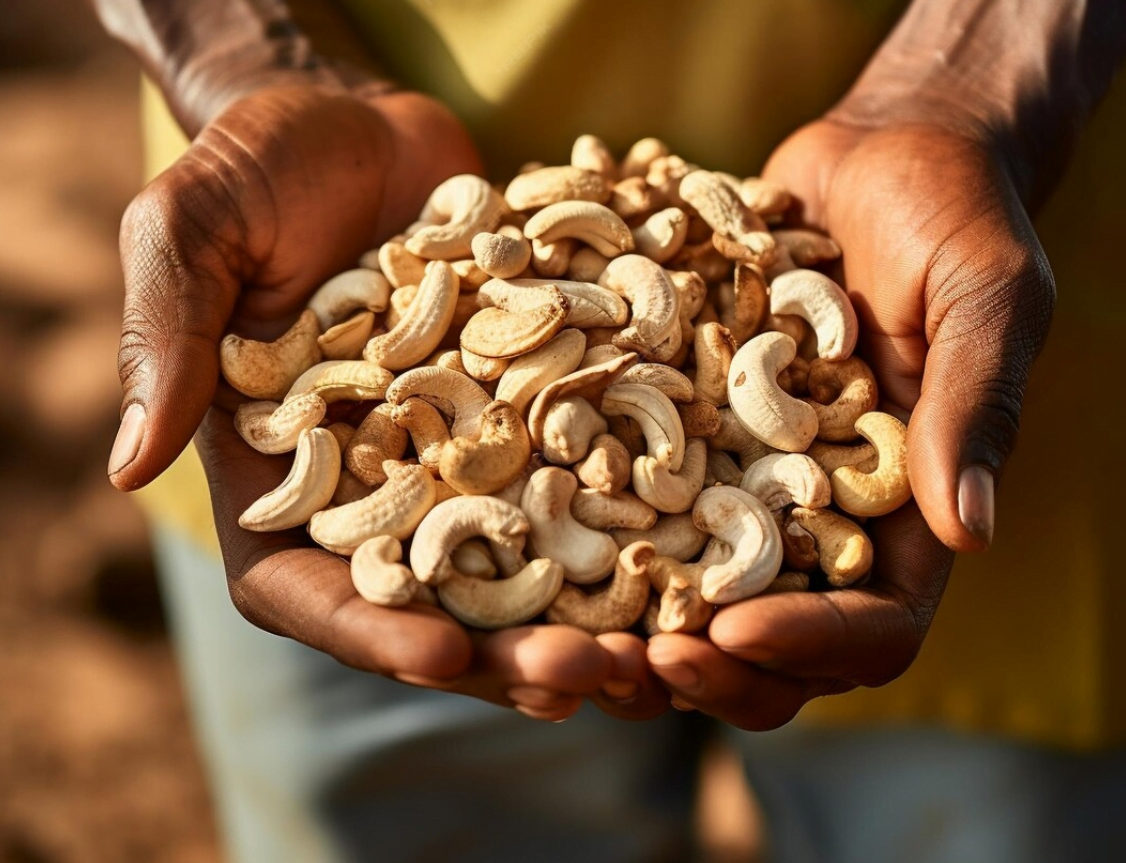A Promising Future for Farmers as Cashew Industry Revives in Coastal Kenya

A transformative breakthrough is unfolding for cashew nut farmers in the coastal Arid and Semi-Arid Lands (ASAL) in Kenya. The visionary initiative comes from an economic diversification program aimed at establishing cashew nut nurseries and farms in these regions.
The State Department for Crop Development has been stalwart in advancing agricultural technologies, initially launching four new cashew nut varieties that boast drought tolerance, disease resistance, and a remarkable one-and-a-half-year maturation period, in stark contrast to traditional varieties taking five years. Named Kkrorosho75, Kkorosho 81, Kkrosho 82, and Kkrosho 100, these varieties are set to improve farmers’ earnings by enabling quicker planting, harvesting, and selling cycles.
Cashew nut farming is a good opportunity for Kenyans who want to cultivate in arid areas because it does not require a lot of rain and is drought-tolerant.
However, the industry has been facing unique challenges that saw most of the cashew nut farmers abandon the enterprise for other ventures due to diseases, pricing and climate change challenges that mostly affected the conventional varieties.
The Kenya Agricultural and Livestock Research Organization (KALRO) has previously stated that the newly developed cashew nut varieties have the capability to address the challenges previously faced by farmers since they are tolerant to major cashew nut diseases and are resilient to adverse weather conditions since they require minimal water. The new varieties are also said to fetch higher market prices, ranging from about 50-70 Kenya Shillings per kilogram, a significant improvement from the earlier rates of 10 to 20 Kenya Shillings.
According to KALRO, the cashew nut industry supports around 50,000 people, with a production of 10,000 metric tonnes. The demand for cashew nuts far exceeds the current production, presenting a lucrative opportunity for farmers to capitalize on the market, both locally and abroad.
READ: Understanding Carbon Credits and How They Can Be Harnessed In The African Agriculture
Historically, veteran cashew nut farmers in coastal regions had heydays as it was the main economic activity. However, political interference and mismanagement led to the decline of the once-thriving Kenya Cashew Nut Limited, impacting farmers’ livelihoods.
The closure of the processing factory in 1990 dealt a severe blow to the industry, prompting farmers to cut down their cashew nut trees. The void left by the processing plant allowed middlemen to exploit farmers, controlling prices to the detriment of those dependent on cashew nut farming.
To address these challenges and breathe new life into the cashew nut industry, a comprehensive 360-degree approach is needed for implementation of a cashew nut enhancement productivity program, focusing on annual seedling planting, training of farmers, establishing cottage industries to discourage the exportation of raw nuts, value addition, and marketing.
It will take concerted efforts from all stakeholders in order to fully revive the cashew nut industry, with the need for policy direction, organized farmer groups, and strategic investments.




2 comments
FRANCIS ITABARI- DIRECTOR ' CHANUA FARMER AGRIBUSINESS K. LTD'
April 21, 2024 at 20:28
This is extremely wonderful. Korosho ni Mali na ni dhahabu kwetu sisi wakulima. Lets welcome this noble plan and mobilize our farmers to help the government to revive the Cashew nuts farming in Kenya especially in the Coastal belt and introduce it in other parts of Kenya like Meru and Tharaka Nithi Counties
Eagmark
April 21, 2024 at 21:11
Francis,
You’re absolutely right – cashews hold great potential for farmers in Kenya. Your encouragement to mobilize farmers and spread awareness about cashew farming in other suitable regions is a fantastic idea. Spreading the word and building a strong network of cashew growers will be key to the industry’s revival.
Are you involved in cashew farming yourself? We’d love to hear more about your experiences and what you think is needed to make this initiative as successful as possible.
Thank you for your enthusiasm and support!